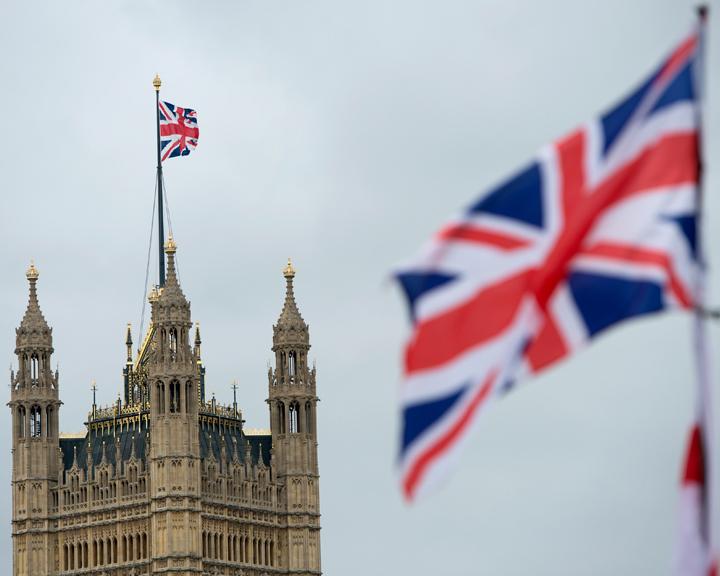BRUSSELS, March 29 (Xinhua) -- The most anticipated mail in recent political history was successfully delivered on Wednesday, as European Council President Donald Tusk received a letter from British Prime Minister Theresa May notifying him that Britain was triggering Article 50 of the Treaty on European Union, formally launching divorce negotiations between Britain and the EU.
The six-page letter notified Tusk that the British government was following the "democratic decision of the people of the United Kingdom" made clear in the Brexit referendum on June 23 last year, and that while it was a choice to "restore, as we see it, our national self-determination," it was not a rejection of shared values with the 27 other members of the EU.
SPECIAL RELATIONSHIP
Stressing several times the "deep and special partnership" that Britain hoped to have with the EU in the future, May's letter went on to propose guiding principles for the pending negotiations, to affirm a wish for close cooperation on a wide variety of international concerns, including the fight against crime and terrorism.
"Together, I know we are capable of reaching an agreement about the UK's rights and obligations as a departing member state, while establishing a deep and special partnership that contributes towards the prosperity, security and global power of our continent," the prime minister wrote.
As the news broke, European leaders shared their dissatisfaction with the situation, lamenting the first time that a member state has sought to leave the European Union in the 60 years since the creation of its predecessor, the European Economic Community (EEC).
Tusk, in a statement released after receipt of the letter, said, "There is no reason to pretend that this is a happy day, neither in Brussels, nor in London. After all, most Europeans, including almost half the British voters wish that we could stay together, not drift apart. As for me, I will not pretend that I am happy today."
"Although we accept the democratic will of the people, today is not a good day for Europe," said President of the European Parliament Antonio Tajani during a press conference on Wednesday.
Guy Verhofstadt, European Parliament's chief Brexit negotiator, at the same press conference, called the pending departure of Britain "unprecedented and regrettable."
Tusk too said: "We miss you already."
UNITED EU FRONT
EU leaders showed unity in advance of the negotiations, which, by law, must be concluded within two years, a daunting feat even for the most willing participants.
"In these negotiations, the Union will act as one and preserve its interests," the European Council's official statement read. "Our first priority will be to minimize the uncertainty caused by the decision of the United Kingdom for our citizen, businesses and member states. Therefore, we will start by focusing on all key arrangements for an orderly withdrawal," it said.
Tusk argued in his statement: "Brexit has made us, the community of 27, more determined and more united than before. This means that both I and the Commission have a strong mandate to protect the interests of the 27. There is nothing to win in this process, and I am talking about both sides. In essence, this is about damage control."
It is no surprise, however, that the strongest position was taken by the European Parliament.
"An orderly exit is an essential precondition for any future European Union-United Kingdom partnership. This is not negotiable," Tajani said following a meeting with the European Parliament conference of presidents.
"For us, it is an absolute priority to settle citizens' rights as soon as possible. It needs to be the first issue to be tackled in negotiations. Citizens should not become bargaining chips," said Verhofstadt.
The text stresses the need for Britain to continue adhering to treaty obligations until its full withdrawal from the Union, including financial commitments.
"The UK will not be asked to pay for anything that they have not previously agreed to," Tajani clarified, while asserting the need for the British government to pay its share.
Members of European Parliament (MEPs) made it clear that the status of being outside the EU cannot be more attractive than those of being inside it.
DRAFT RESOLUTION
However, a draft resolution outlines possibilities for future association agreements, predicated on the continued respect by Britain of EU standards in the areas of the environment, climate change, fighting tax evasion and avoidance, fair competition, trade and social policy.
President Tajani reiterated the "four freedoms" of the free movement of goods, services capital and people were "indivisible" and "non-negotiable."
The European Parliament will also propose a transitional period of a maximum of three years for the development of a new relationship between the two sides, but the draft resolution argues that such an agreement cannot be made for the future partnership until Britain has left the Union.
This runs counter to May's proposal, as set forth in her Wednesday letter, to conduct withdrawal negotiations simultaneously with talks for a "bold and ambitious free trade agreement" of "a scope and ambition greater than any such agreement before it," so as to reduce uncertainty and foster future prosperity.
The European Parliament's draft resolution, which takes into account the requirement for the European Parliament to approve the final Brexit agreement for a deal to take effect, will be voted on next week during the body's plenary session in Strasbourg.
Wednesday's press conference was backed by four of the major political groups represented at the Parliament: the European People's Party, the Socialists, the Alliance of Liberals and Democrats for Europe, and the European Greens.




 A single purchase
A single purchase









